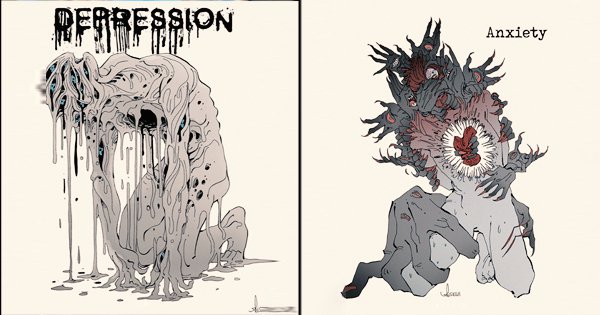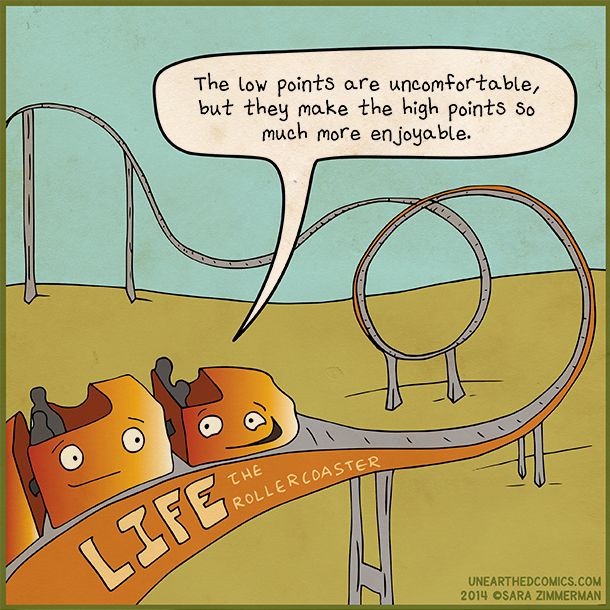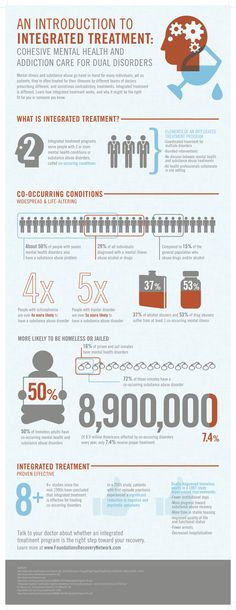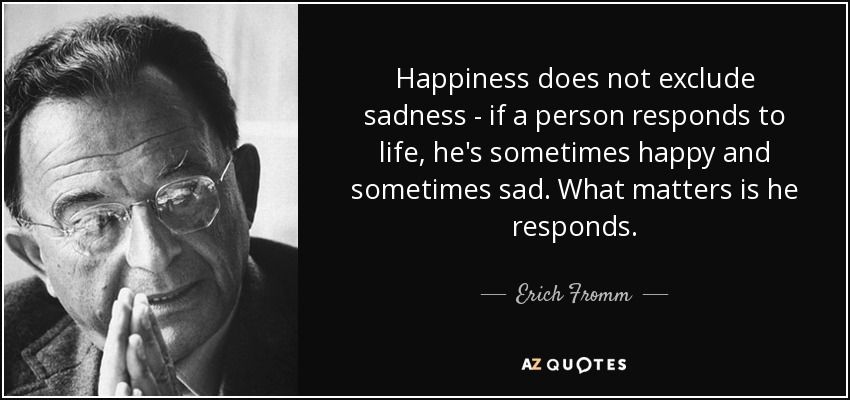Need for comfort
How to Effectively Comfort Yourself
When no one is available in your moment of need, you can find ways to soothe and comfort yourself.
Comforting others can take many shapes: an embrace, a consoling word, a well-intentioned gift.
When it comes to your personal needs, however, comforting yourself may feel like unfamiliar territory. You may not know how to do it or even feel guilty about focusing on yourself.
But self-comfort is important for emotional well-being and can be implemented easily by developing a few skills. Comforting yourself can help you cope with stressful situations and life challenges.
Practicing self-soothing and comforting techniques can also help you manage stress levels and boost your emotional health.
Comfort implies you aren’t in distress. Your needs have been met, and you aren’t lacking anything vital.
When you need comfort, it’s often when you feel something’s missing. You become uncomfortable because a need isn’t met, and that can result in:
- stress
- anxiety
- depression
When you regain that something you were missing or you replace it with something else that’s also important, you feel comforted.
For example, you may feel sad and hopeless after losing your job. If a friend comes over to spend some time with you, brings your favorite food, and offers words of advice, you may feel comforted. You didn’t replace the lost job, but attention, care, and love may help you fill in the void, even if temporarily.
When it comes to comforting yourself, you can think of ways to replace or recover what you’re missing.
You can also engage in activities that distract you from your sense of discomfort. This may not solve the situation but can reset your emotional and mental state so you can circle back with a sense of peace and calm.
If you live with a chronic condition like depression or post-traumatic stress disorder (PTSD), you may want to find a way to be proactive, so you can quickly comfort yourself on those days you need it the most.
Comfort often comes from those around you. The people who support you can help fill in your comfort gaps.
If you’re feeling lonely, they can provide company, for example. If you need a new winter jacket but can’t spare the money, they might be able to lend you one.
If you need a new winter jacket but can’t spare the money, they might be able to lend you one.
Support networks aren’t always available, however. When you need comfort but can’t find it in other people, you can try to soothe yourself with these methods:
1. Consider letting in the fresh air
The spaces around you can contribute to your sense of comfort or lack thereof.
If you’re going through difficult times or are experiencing anxiety, for example, your environment can contribute to this feeling.
Many people around the world also experience sick building syndrome, an ill feeling related to construction issues like poor ventilation, intrusive lighting, and electromagnetic radiation.
You may be able to comfort yourself or prevent additional stress by improving your lighting and air quality. You can let the breeze through an open window or go for a walk in the park.
Being aware of how your environment affects you and finding ways to change it is a great technique to comfort yourself.
2. Try to create a comforting space
Making your home a comfort zone can help encourage your sense of security and peace when you’re having a bad day. It can also help you improve your sense of comfort in general if you’re facing ongoing challenges.
You can maximize the comfort levels of your home by:
- eliminating combustion appliances
- swapping old furniture out for certified low-emission products
- using an air purifier
- adding nature features inside like plants
- choosing soft lighting tones and avoiding areas of high contrast
- adding sound dampening features to compensate for noise pollution
- decorating with themes that bring you joy
- maintaining a sense of order and cleanliness
If you work from home, you may want to designate a separate comforting space. This can be your bathroom, balcony, or even closet. The idea is to pour your attention and intention into a space that makes you feel at peace and comforted whenever you spend time there.
You can also identify places outside of your home that may help you feel comforted. You could visit these places regularly to fuel this feeling or visit them on days you need it most.
Some ideas may include:
- museums and art galleries
- a lake or the beach
- local park
- natural preserve
- bike paths
- animal shelter
- your front or backyard
- a terrace or rooftop
- community gardens
3. Try self-compassion
Self-compassion is the practice of giving yourself the same level of kindness you’d show someone you care for. Self-compassion may start by not putting yourself down. It’s related to self-respect.
To try self-compassion, concept founder Kristin Neff recommends asking yourself what you would do for a dear friend if they were experiencing what you’re experiencing.
If you’d offer kind words, for example, you offer those kind words to yourself.
You can also practice self-compassion through:
- journaling your feelings
- doing something you love that you don’t get to do often
- writing a love letter to yourself
- practicing supportive touch exercises
- engaging in relaxation techniques that calm you down
- not labeling or judging your reactions and feelings
4.
 Consider the possibilities of mindfulness
Consider the possibilities of mindfulnessWhen you need to comfort yourself, mindfulness practices may offer a way to re-center your thoughts on the here-and-now and gain perspective on your situation.
You can practice mindfulness by taking moments throughout the day to engage in deep breathing and letting negative thoughts pass without dwelling on them.
Using positive affirmations can also provide you with a sense of comfort on those days you feel unmotivated or hopeless.
5. Try a cathartic method
Catharsis refers to emotional release. It’s when you let it all out.
Bottling up your emotions can have a negative effect over time. But finding a constructive way to express yourself can also be challenging. The idea is that you can release your hurtful emotions without negatively impacting yourself or someone else.
Try to feel your feelings without censoring yourself. If you feel like crying, for example, try to let yourself do that.
Some other ways you can find healing emotional release include:
- journaling
- listening and singing along to your favorite music
- dancing to your favorite beats
- drawing or painting what comes to your head
- exercising
6.
 Consider taking a shower or bath
Consider taking a shower or bathShowers and baths can be soothing and relaxing, but research from 2011 suggests the act of cleaning yourself may also provide mental comfort.
According to the study authors, physical cleaning can help you process possible feelings of guilt or doubt about a course of action.
When you have a bad day, certain things may feel as though they bring you comfort or release in the moment, but this may not always be the case.
You may want to spend some time identifying behaviors that have made you feel regretful afterward. For example:
- substance and alcohol use
- excessive shopping
- connecting with unkind people
- binge eating
- self-harm
Being aware of those behaviors you tend to regret might help you avoid them and replace them with something that does bring you lasting comfort.
You may not know how to comfort yourself or might feel guilty for taking the time to do so. But self-comfort techniques can help you increase your sense of well-being.
Journaling, creating safe spaces, and finding a cathartic method can all be effective ways to comfort and soothe yourself.
If you feel self-comfort is challenging to you, consider seeking out the help of a mental health professional. They can explore the root cause of your difficulty and help you develop coping skills.
How to Effectively Comfort Yourself
When no one is available in your moment of need, you can find ways to soothe and comfort yourself.
Comforting others can take many shapes: an embrace, a consoling word, a well-intentioned gift.
When it comes to your personal needs, however, comforting yourself may feel like unfamiliar territory. You may not know how to do it or even feel guilty about focusing on yourself.
But self-comfort is important for emotional well-being and can be implemented easily by developing a few skills. Comforting yourself can help you cope with stressful situations and life challenges.
Practicing self-soothing and comforting techniques can also help you manage stress levels and boost your emotional health.
Comfort implies you aren’t in distress. Your needs have been met, and you aren’t lacking anything vital.
When you need comfort, it’s often when you feel something’s missing. You become uncomfortable because a need isn’t met, and that can result in:
- stress
- anxiety
- depression
When you regain that something you were missing or you replace it with something else that’s also important, you feel comforted.
For example, you may feel sad and hopeless after losing your job. If a friend comes over to spend some time with you, brings your favorite food, and offers words of advice, you may feel comforted. You didn’t replace the lost job, but attention, care, and love may help you fill in the void, even if temporarily.
When it comes to comforting yourself, you can think of ways to replace or recover what you’re missing.
You can also engage in activities that distract you from your sense of discomfort. This may not solve the situation but can reset your emotional and mental state so you can circle back with a sense of peace and calm.
If you live with a chronic condition like depression or post-traumatic stress disorder (PTSD), you may want to find a way to be proactive, so you can quickly comfort yourself on those days you need it the most.
Comfort often comes from those around you. The people who support you can help fill in your comfort gaps.
If you’re feeling lonely, they can provide company, for example. If you need a new winter jacket but can’t spare the money, they might be able to lend you one.
Support networks aren’t always available, however. When you need comfort but can’t find it in other people, you can try to soothe yourself with these methods:
1. Consider letting in the fresh air
The spaces around you can contribute to your sense of comfort or lack thereof.
If you’re going through difficult times or are experiencing anxiety, for example, your environment can contribute to this feeling.
Many people around the world also experience sick building syndrome, an ill feeling related to construction issues like poor ventilation, intrusive lighting, and electromagnetic radiation.
You may be able to comfort yourself or prevent additional stress by improving your lighting and air quality. You can let the breeze through an open window or go for a walk in the park.
Being aware of how your environment affects you and finding ways to change it is a great technique to comfort yourself.
2. Try to create a comforting space
Making your home a comfort zone can help encourage your sense of security and peace when you’re having a bad day. It can also help you improve your sense of comfort in general if you’re facing ongoing challenges.
You can maximize the comfort levels of your home by:
- eliminating combustion appliances
- swapping old furniture out for certified low-emission products
- using an air purifier
- adding nature features inside like plants
- choosing soft lighting tones and avoiding areas of high contrast
- adding sound dampening features to compensate for noise pollution
- decorating with themes that bring you joy
- maintaining a sense of order and cleanliness
If you work from home, you may want to designate a separate comforting space. This can be your bathroom, balcony, or even closet. The idea is to pour your attention and intention into a space that makes you feel at peace and comforted whenever you spend time there.
This can be your bathroom, balcony, or even closet. The idea is to pour your attention and intention into a space that makes you feel at peace and comforted whenever you spend time there.
You can also identify places outside of your home that may help you feel comforted. You could visit these places regularly to fuel this feeling or visit them on days you need it most.
Some ideas may include:
- museums and art galleries
- a lake or the beach
- local park
- natural preserve
- bike paths
- animal shelter
- your front or backyard
- a terrace or rooftop
- community gardens
3. Try self-compassion
Self-compassion is the practice of giving yourself the same level of kindness you’d show someone you care for. Self-compassion may start by not putting yourself down. It’s related to self-respect.
To try self-compassion, concept founder Kristin Neff recommends asking yourself what you would do for a dear friend if they were experiencing what you’re experiencing.
If you’d offer kind words, for example, you offer those kind words to yourself.
You can also practice self-compassion through:
- journaling your feelings
- doing something you love that you don’t get to do often
- writing a love letter to yourself
- practicing supportive touch exercises
- engaging in relaxation techniques that calm you down
- not labeling or judging your reactions and feelings
4. Consider the possibilities of mindfulness
When you need to comfort yourself, mindfulness practices may offer a way to re-center your thoughts on the here-and-now and gain perspective on your situation.
You can practice mindfulness by taking moments throughout the day to engage in deep breathing and letting negative thoughts pass without dwelling on them.
Using positive affirmations can also provide you with a sense of comfort on those days you feel unmotivated or hopeless.
5. Try a cathartic method
Catharsis refers to emotional release. It’s when you let it all out.
It’s when you let it all out.
Bottling up your emotions can have a negative effect over time. But finding a constructive way to express yourself can also be challenging. The idea is that you can release your hurtful emotions without negatively impacting yourself or someone else.
Try to feel your feelings without censoring yourself. If you feel like crying, for example, try to let yourself do that.
Some other ways you can find healing emotional release include:
- journaling
- listening and singing along to your favorite music
- dancing to your favorite beats
- drawing or painting what comes to your head
- exercising
6. Consider taking a shower or bath
Showers and baths can be soothing and relaxing, but research from 2011 suggests the act of cleaning yourself may also provide mental comfort.
According to the study authors, physical cleaning can help you process possible feelings of guilt or doubt about a course of action.
When you have a bad day, certain things may feel as though they bring you comfort or release in the moment, but this may not always be the case.
You may want to spend some time identifying behaviors that have made you feel regretful afterward. For example:
- substance and alcohol use
- excessive shopping
- connecting with unkind people
- binge eating
- self-harm
Being aware of those behaviors you tend to regret might help you avoid them and replace them with something that does bring you lasting comfort.
You may not know how to comfort yourself or might feel guilty for taking the time to do so. But self-comfort techniques can help you increase your sense of well-being.
Journaling, creating safe spaces, and finding a cathartic method can all be effective ways to comfort and soothe yourself.
If you feel self-comfort is challenging to you, consider seeking out the help of a mental health professional. They can explore the root cause of your difficulty and help you develop coping skills.
Basic human needs. Maslow's classification of needs
Hello friends. Today we will talk about human needs. Oh, how much we want at once! Moreover, sometimes desires change literally at the speed of light (this is especially true for the beautiful half of humanity).
You may be interested
Basic human needs
There are several basic needs that almost every person strives to satisfy throughout life. Let's consider them in more detail.
Need for survival
The survival instinct is the most powerful instinct of a human being. Every person wants to save his life, to protect his family, friends, compatriots from danger. Only having received a guarantee of survival, a person begins to think about meeting other needs.
The need for security
As soon as a person receives guarantees of survival, he begins to think about the security of every aspect of his life:
- Financial security - every person is afraid of poverty and material losses and strives to overcome them.
 It is expressed in the desire to save and increase wealth.
It is expressed in the desire to save and increase wealth. - Emotional security is necessary for a person to feel comfortable.
- Physical security - everyone needs food, warmth, shelter and clothing to some extent.
The need for security does not mean that a person needs an armored door. He may well want to purchase high-quality wallpapers that will serve him for a long time.
Need for comfort
As soon as a person reaches the minimum level of security and safety, he begins to seek comfort. He invests a huge amount of time and money to create a cozy home environment, strives to create comfortable conditions at work. To do this, he chooses products that are convenient and easy to use.
The need for free time
People want to take as much time off as possible and look for every opportunity to stop work and take a break. The focus of the bulk of the people are evenings, weekends and holidays. Leisure time activities play a central role in human behavior and decision making.
Leisure time activities play a central role in human behavior and decision making.
Need for love
People have an urgent need to build and maintain loving relationships. Everything that a person does is aimed either at achieving love, or at compensating for the lack of love. An adult personality is formed in conditions of love received or not received in childhood. The desire to create secure conditions for love is the main cause of human behavior.
The need for respect
A person strives to earn the respect of other people. This is the main part of human activity. Loss of respect can be a significant cause of dissatisfaction, and gaining a high-ranking position can be more motivating than a high salary.
The need for self-realization
The highest desire of a person throughout life is the realization of the creative potential of the individual, his talents and abilities. Human motivation is directed towards achieving everything they are capable of achieving. The need for self-realization may be stronger than all other motivations.
The need for self-realization may be stronger than all other motivations.
Maslow's hierarchy of needs theory
Despite the fact that people have a lot of needs and desires, they can be divided into certain groups. The American psychologist Abraham Harold Maslow arranged all human needs into a structure, or pyramid of needs, which is a simplified summary of his ideas.
Maslow's classification of needs reflects one of the most well-known theories of motivation today - the theory of the hierarchy of needs. Maslow analyzed all human needs and arranged them in the form of a pyramid.
Maslow's classic pyramid (5 steps)
Maslow believed that a person cannot experience higher level needs if he lacks simpler things. For example, a person who has nothing to eat does not need recognition and approval. But when hunger is satisfied, needs of a higher order appear.
Extended Maslow's Pyramid (7 steps)
The same needs manifest themselves differently in different people, as everyone has their own motives, abilities, life experience, goals. For example, the need for respect and recognition in one person may be expressed in the desire to become a great scientist, in another it is enough to be respected by friends and parents. The same can be said about any needs, even about food - one person is happy if he has bread, another needs delicacies to be completely happy.
For example, the need for respect and recognition in one person may be expressed in the desire to become a great scientist, in another it is enough to be respected by friends and parents. The same can be said about any needs, even about food - one person is happy if he has bread, another needs delicacies to be completely happy.
Maslow's classification of needs
Maslow based his classification of needs on the thesis that human behavior is determined by basic needs that can be built in steps, depending on the significance and necessity of their satisfaction for a person. Let's look at them starting with the first.
Primary (innate) human needs
The first level - physiological needs (thirst, hunger, rest, physical activity, reproduction of the family, breathing, clothing, housing). This is the most pronounced group of human needs. A poor person, according to Maslow, experiences, first of all, physiological needs. When faced with a choice between satisfying hunger and being approved by society, most people will choose food.
The second level is the need for security (existence security, comfort, job security, accident insurance, confidence in the future). A healthy, well-fed person feels the need for security, wants to ensure a reasonable order, structure and predictability of his environment. For example, he wants to receive certain social guarantees for employment.
Secondary (acquired) human needs
Third level - social needs (social connections, communication, affection, caring for another person, attention to oneself, participation in joint activities). After satisfying physiological needs and ensuring security, a person wants to receive the warmth of friendship, family or love relationships. He is looking for a social group that will satisfy these needs and relieve the feeling of loneliness. In particular, various organizations, groups, circles, interest clubs play such a role.
Fourth level - prestige needs (self-respect, respect from others, recognition of society, achievement of success and high marks, career growth). Each person needs to be assessed by society for their merits and achievements. But he begins to believe in himself and his strength, only having achieved something in life and earned himself recognition and reputation.
Each person needs to be assessed by society for their merits and achievements. But he begins to believe in himself and his strength, only having achieved something in life and earned himself recognition and reputation.
Fifth level – spiritual needs (self-realization, self-affirmation, self-expression, self-development through creativity). According to Maslow's theory, a person feels the need for self-expression only after satisfaction of all lower needs.
Maslow's hierarchy of needs theory assumes that a person must first satisfy the needs located at the bottom of the pyramid, and only then understand that he wants to satisfy the need located at the next step. That is, this sequential arrangement of basic needs in a hierarchy is fundamental in the organization of human motivation.
Most people do this, but there are exceptions to this theory. For example, people of science and art can develop and fulfill themselves despite hunger, illness and social problems. For some people, their values and ideals are so important that they would rather endure any hardship than give it up.
For some people, their values and ideals are so important that they would rather endure any hardship than give it up.
Also, people can sometimes create their own hierarchy of needs and prioritize other values, such as respect and promotion, rather than family and children.
A person's needs also depend on age. For example, the satisfaction of physiological needs and the need for security is more typical for children, the need for belonging and love - for adolescents, the need for self-expression - for people over 40 years old.
Maslow suggested that the average person satisfies his needs in the following degree:
- 85% physiological
- 70% security and protection
- 50% love and belonging
- 40% self-respect
- 10% self-realization
If there are difficulties in meeting the needs of a lower level, the person will return there and stay until these needs are sufficiently satisfied.
But this is all theory. Let's get some practice. Do you know your needs? Have you classified your needs? If not, let's do it right now.
Let's get some practice. Do you know your needs? Have you classified your needs? If not, let's do it right now.
Think about what is more important for you - buying sweets or toys for a child, the approval of a spouse or a bonus? Whatever you choose, it is important to know your purpose in life and, without deviating from it, move forward.
I wish you, dear readers, to achieve the satisfaction of all your needs.
Human needs - askalex.ru
This article fully meets the needs of all those confused in life who have recently had the thought “I don’t know what I want from life”. All our desires are rooted in 7 human needs . I divided them into 2 broad categories: physical and psychological. And if you dig deeper into these needs, then you can really find out what you need from life. Everything, absolutely everything that you have ever wanted or may want, falls under one of the human needs outlined below. These 7 human needs underlie all our feelings, thoughts and actions and explain any behavior, ours or someone else's. They summarize our entire complex and sometimes inexplicable psychology. So, it's time to get to know yourself:
These 7 human needs underlie all our feelings, thoughts and actions and explain any behavior, ours or someone else's. They summarize our entire complex and sometimes inexplicable psychology. So, it's time to get to know yourself:
Human physical needs
We live, guided by the main instinct - the instinct of self-preservation. The more life-threatening the situation we find ourselves in, the more discomfort it will cause us. So, as far as our physiological needs are concerned, here nature has prioritized for us.
1. Physical comfort
Lack of oxygen will kill a person in seconds, which is why we want to breathe the most. Extreme cold can destroy us in a matter of hours. Thirst will take a little longer. A little more “pleasant” in this list of human needs would be hunger… Physical comfort is so programmed into human needs that even when all of our basic needs are met, we will still try to improve them. People will “by inertia” move to b o Greater homes, even when not needed. We will eat long before the onset of hunger, and some of us still spend 4 hours a day on gas-polluted highways, returning from work to the dacha, thinking that this is better for their body - the air is cleaner in the dacha ... Conclusion: Knowing how comfort is exaggerated in our understanding, you can stop improving what is already good (the comfort of your life) and pay attention to other needs that you still have absolutely not satisfied. You will be able to understand why the quality of your life does not improve with the addition of comfort - comfort is already enough, you must pay attention to other human needs that you have completely neglected.
People will “by inertia” move to b o Greater homes, even when not needed. We will eat long before the onset of hunger, and some of us still spend 4 hours a day on gas-polluted highways, returning from work to the dacha, thinking that this is better for their body - the air is cleaner in the dacha ... Conclusion: Knowing how comfort is exaggerated in our understanding, you can stop improving what is already good (the comfort of your life) and pay attention to other needs that you still have absolutely not satisfied. You will be able to understand why the quality of your life does not improve with the addition of comfort - comfort is already enough, you must pay attention to other human needs that you have completely neglected.
Human psychological needs
We will live two lives at the same time. One of them is real, small, physical. Another is lived in our minds, in our thoughts - psychological. It is much larger than real life. All fears, dreams, desires and experiences are basically invented by us, massaged by our brain in debt and in large numbers and do not exist at all in the real world. The psychological needs of a person require more attention in the modern world, since the physiological ones are already easily satisfied, thanks to the achievements of mankind and the increased standard of living.
All fears, dreams, desires and experiences are basically invented by us, massaged by our brain in debt and in large numbers and do not exist at all in the real world. The psychological needs of a person require more attention in the modern world, since the physiological ones are already easily satisfied, thanks to the achievements of mankind and the increased standard of living.
2. Stability.
Stability is a basic psychological need of a person . It can be summarized in a simple sentence: the belief that it will not get worse. Unlike the previous point, stability is a psychological concept based on our thoughts, and not on objective reality. Stability is the mirror image of physical comfort in our minds, the belief that our primary need, physical comfort, will continue.
3. New
Novelty is a constant human need, which, if not satisfied, causes us serious discomfort in the form of boredom. We love to learn, watch different movies, travel to new places, experience fresh sensations and even get nervous when the dishes on our plate are repeated throughout the day! Novelty is one of the strongest human needs, which increases in importance immediately after stability is achieved, and begins to conflict with it. In search of stability, people marry and find permanence. But after it comes the need for novelty and their joint future is no longer so predictable. We often don't know what we want, not because of stupidity, but because our needs conflict. And in different periods of time, our desires change, balancing between stability and novelty. This should be accepted as a normal phenomenon, and not ask yourself the question: “what is wrong with me?”. By the way, the older we get, the more we learn in this world, which means that the less new things surround us, and over the years, boredom can become a serious problem. Adults, instead of self-knowledge that has grown with experience, due to the boredom that has appeared, begin to “search for themselves” more and more, while in fact they are looking not for themselves, but for novelty, which is rapidly disappearing from their lives with each new experienced sensation.
We love to learn, watch different movies, travel to new places, experience fresh sensations and even get nervous when the dishes on our plate are repeated throughout the day! Novelty is one of the strongest human needs, which increases in importance immediately after stability is achieved, and begins to conflict with it. In search of stability, people marry and find permanence. But after it comes the need for novelty and their joint future is no longer so predictable. We often don't know what we want, not because of stupidity, but because our needs conflict. And in different periods of time, our desires change, balancing between stability and novelty. This should be accepted as a normal phenomenon, and not ask yourself the question: “what is wrong with me?”. By the way, the older we get, the more we learn in this world, which means that the less new things surround us, and over the years, boredom can become a serious problem. Adults, instead of self-knowledge that has grown with experience, due to the boredom that has appeared, begin to “search for themselves” more and more, while in fact they are looking not for themselves, but for novelty, which is rapidly disappearing from their lives with each new experienced sensation.
4. Significance
The human need, which is perhaps the most insatiable, is our significance, importance. We are ready to forgive the person who accidentally bruised us and at the same time apologized, but we can cling to the throat of someone who thought bad about us. Deep in our minds, we think that the ratio of us to all of humanity is not 1:5,000,000,000 (billions), but 1:1. Me and the world. At the same time, we must understand that our significance performs the most important function in human evolution. The psychological need to be significant sets a high standard for us and we strive to be better. We invent an image for ourselves and go out of our way to live up to it. We strive to gain the respect of others and are willing to pay a high price for it. We are ready to work, study 12 hours a day, only to be better than others or surpass ourselves yesterday. Since childhood, we dream of becoming firefighters, astronauts or surgeons, because we think that what we will do will make us significant. We believe that the profession of our dreams will give us importance in the eyes of other people. Think back to your childhood. For me, when I was 5 years old, a firefighter in a helmet and boots looked more significant than the president of the country. Today's human evolution, about which I will no doubt write separate posts, owes much to the human need for significance.
We believe that the profession of our dreams will give us importance in the eyes of other people. Think back to your childhood. For me, when I was 5 years old, a firefighter in a helmet and boots looked more significant than the president of the country. Today's human evolution, about which I will no doubt write separate posts, owes much to the human need for significance.
5. Communication
The human need for communication explains the huge number of languages that have formed on the planet. If you analyze your life, you will notice that the best feelings you have in life are connected with other people. We cannot be happy alone. We fear imprisonment not so much because it will limit our freedom of movement, but because we will be cut out of our usual social circle. Communication is a human need that can either conflict with all other needs or help satisfy them if it happens to the right people. That is why our happiest moments and greatest misfortunes are connected with other people - communication with them is intertwined with several basic human needs at once.
6. Height
If you combine the two human needs of relevance and novelty, you will get growth. Personal growth, bank account growth, improvements. This need is so strong in us that it exists apart from the rest. We want to develop, we think about how to change ourselves, and we can’t even stop at 1-2 glasses during the celebration, because the feeling of intoxication is growing. We are always short of everything. We need to improve everything. Self-improvement is a separate need that exists in each of us.
7. Desire to help others
The last human need is the desire to help others. I put it last, because this one is the least connected with the instinct of self-preservation and therefore works weaker than the others. Moreover, we cannot give to another what we ourselves do not have. People first earn money, and then they engage in philanthropy. The last place is valid here and logical - when the basic needs are satisfied, we look to the rest and begin to help them.














